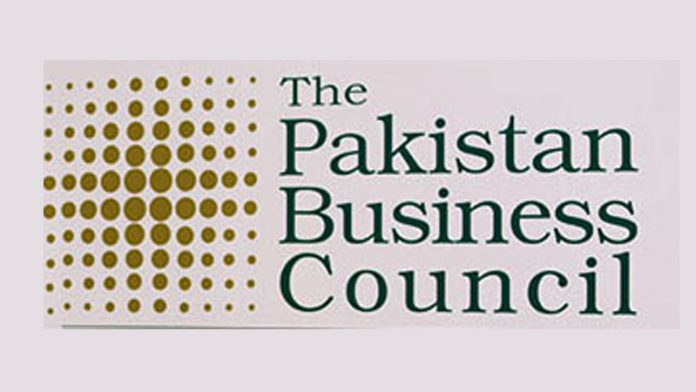
Speaking at Pakistan Business and Economic Summit in Karachi over two years ago, Ehsan Malik, CEO of Pakistan Business Council asked how do we hope to convince foreigners to invest in the country if we don’t even talk of our own domestic investment. Questioning that when did we last recall seeing statistics on domestic investments reported in the business press, Malik lamented that it was easier to get an appointment with the finance minister and the prime minister for visiting CEOs of foreign companies than it was for most local business leaders. “Pakistani business leaders are treated with suspicion whilst the red carpet is rolled out for FDI”, he remarked.
Uttered by a key spokesman of corporate sector Malik’s words echoed a long standing grievance of the local businessmen. Our emphasis on foreign direct investment has put interests and concerns of indigenous businesses on the back burner. Among other things, this has led to lack of projection of our corporate sector in our official narrative.
In wooing international entrepreneurs, we have played down the success odysseys of our own businessmen. The moot point is to increase satisfaction level of native businessmen, inextricably linked with business sentiment, in order to persuade foreigners to launch business operations in our homeland. After all, the local businessmen are the prime stakeholders in the financial ecosystem and central party to the charter of economy.
Our brief that is usually delivered in global business conclaves like World Economic Forum (WEF) misses speaking notes on leading and emerging businesses in Pakistan. The talking points highlight geo-strategic location, huge market, youthful population, investment incentives and cheap labour, but ignore the players in the country’s business landscape. It is customary to conduct in foreign countries talks by academics, journalists, technocrats, military leaders, and politicians from Pakistan, but international audiences have yet to hear about the achievements of our corporate holdings directly from them. The world is interested in how our businesses emerged successful in the face of challenges of security, energy and financial uncertainties caused mostly by ever-simmering political tremors.
Even at WEF, it is mostly the prime minister and members of the official entourage who do most of the talking with foreign business executives. The few representatives from our private sector accompany more for relevance. The substantive participation of our businessmen in this forum’s several brain storming segments is minimal without materialising into useful business-to-business networking. And the result is that no concrete economic benefit has accrued from this annual yatra. The foreign investors would rush to Pakistan once they hear promising reports from their Pakistani counterparts. And rich members of Pakistani diaspora would follow suit. We have a brilliant list of business executives who are capable of articulating themselves in eloquently.
Our TV news channels seldom run documentaries on business profile of corporate groups in the country. On national occasions, special messages from sports stars, showbiz figures, academics, politicians and civil society activists are aired but hardly a message from some business representative is flashed. In talk shows and news bulletins, the business leaders are sometimes taken online to give opinion on some urgent issue. There is a need for a dedicated business TV channel that presents news reports and documentaries about local businesses and other stakeholders along with the spectacular journey of senior corporate executives.
In the spirit of the government’s stated agenda, our policy gurus must put financial and business priorities ahead of political ones. It is the thriving businesses that would lead to economic growth and would, in turn, lead to resolution of political and strategic issues. Special government emissaries are sent abroad for explaining government’s stance on political issues, but no business envoys from Pakistan travel to foreign countries to give presentations in the foreign think tanks and official quarters about the state of the private sector in Pakistan and incentives for prospective investors. The projection of national businessmen and heads of export-oriented industries should be ingrained in consistent policy framework in line with the intention of Prime Minister Imran Khan to set up “a culture of respect for investors”, local and outsiders combined.
One reason for putting native entrepreneurs on the blind spot could be the mistrust in official quarters as mentioned at the beginning of this article. This confidence gap could be addressed by granting due priority to the country’s businessmen inconsistent reforms and incentives.
In the international media, our businessmen hardly get coverage in prestigious journals and papers including the Forbes Asia, Bloomberg, and The Financial Times, to mention few. The Forbes magazine lists young Pakistani entrepreneurs in under-30 category but remains silent about Pakistani corporate figures. Why we don’t buy space in world’s renowned business journals or sponsor time in TV channels like BBC, CNN or Aljazeera? As Pakistan has entered into an historic business engagement with China under CPEC, is there not a need to present Pakistani businesses and corporate icons on China Global Television Network (CGTN) paving way for possible joint ventures in several projects?
It is high time we shift our diplomatic focus to our own businessmen in order to achieve desired objectives of attracting foreign investors and encoraging our exporters. In our official briefs the importance of incorporating points on our key agents of economic landscape can hardly be over-emphasised. Our Board of Investment (BoI) must on its website include noted business players and bodies in the country in the section on various sectors with direct links to the websites of business houses and associations. Our diplomatic missions abroad should buy time and space in foreign electronic and print media to flag success stories of national national businesses in their own right and also in win-win partnerships with foreign companies. Our embassies should arrange talks by our business leaders in think tanks and conferences in host countries. While most of the business executives will be happy to finance their visits abroad, the government must make available sufficient resources in the media domain so that in one stroke we can achieve twin objectives: attracting investment and promoting softer image closely linked with business growth. Projection of indigenous business holdings and national corporate heads must be a perpetual process through official, diplomatic, academic, business and journalistic channels.
Compared to foreign investors, our businessmen deserve better deals as they re-invest their wealth within Pakistan apart from paying taxes. The newly constituted Council of Business Leaders must give thought to projecting local businesses within country and at global level. Now that the business activity is being steered by corporate executives like finance minister and advisor on commerce, it shouldn’t be out of place to expect that as members of business fraternity they would accord the needed priority to our own entrepreneurs in terms of reforms, addressing of their concerns and projection of their role in economic growth. Prime Minister Imran Khan was right on the money when, talking on economic diplomacy at the Foreign Office on 28 December 2018, he proposed to encourage and promote our businesses and industries to attract investments. In the days ahead, seeing would be believing on this count.






















I have watched, a few days back, on CGTN, a Chinese anchor interviewing Asad Umer, Finance Minister of Pakistan. It is true that Pakistani key businessmen must be projected in international media and for that govt should send the profiles of key businessmen to CGTN through Chinese embassy,so that those could be highlighted in the context of developing joint ventures in the special economic zones under the spec.
Capital always seeks safety first and growth later.
Pakistan’s own Businessmen, Investors, Upper Middle Class Families do NOT have faith in Pakistan’s future as a viable nation.
This is the reason why on the very first opportunity, Pakistani people take out their money and invest abroad (especially to buy foreign real estate).
For those who do NOT have money, such Pakistani people!e try their best to migrate to better countries in Middle East.
Pakistan’s own people KNOW that Pakistan is a CORRUPT, UN-VIABLE banana Military State based on INTOLERANT, RADICAL DOGMA of TOTALITARIAN ideology of ISLAM !!
Comments are closed.